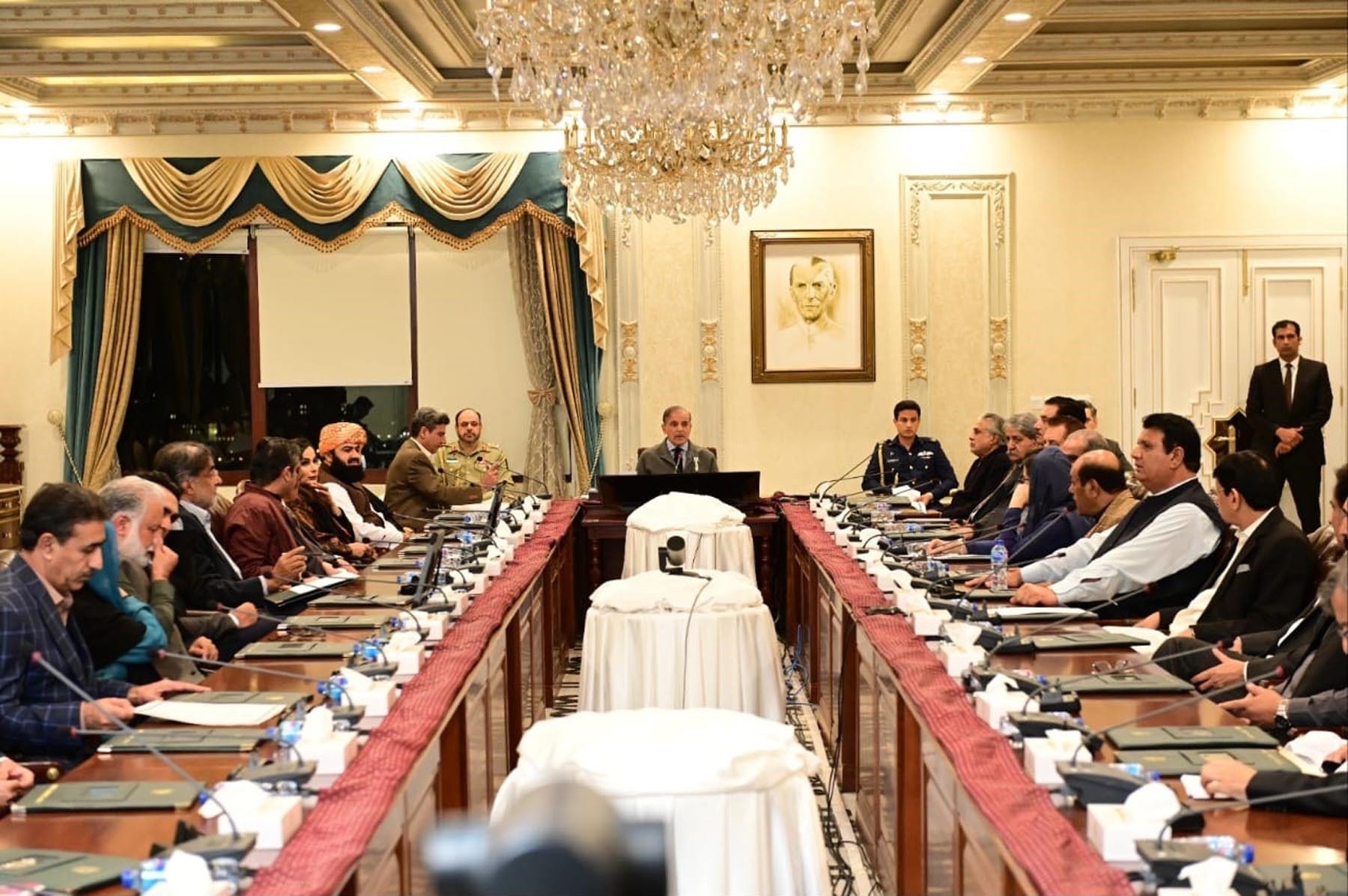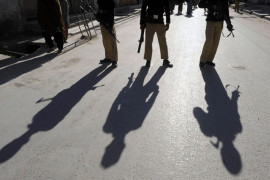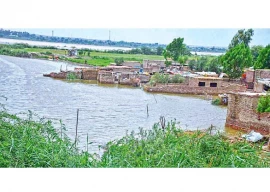
The federal cabinet approved on Friday the decisions taken in the National Security Committee (NSC), wherein it was decided that the protesters who ransacked and vandalised military installations on May 9 would be tried under the Army Act and the Official Secrets Act.
The federal cabinet meeting, chaired by Prime Minister Shehbaz Sharif at the Prime Minister House, gave approval for trying civilians in the military courts just days after the NSC and the Corps Commanders' Conference vowed to bring those behind the violent protests to justice.
On May 9, widespread protests broke out after paramilitary Rangers arrested Pakistan Tehreek-e-Insaf (PTI) chief Imran Khan from the premises of the Islamabad High Court (IHC).
The protestors vandalised public and state properties and even attacked the General Headquarters in Rawalpindi and Lahore Corps Commander’s residence. The rioting was followed by a harsh crackdown against the PTI leaders and workers that still continues.
A key cabinet minister while requesting anonymity told The Express Tribune that no new military courts would be established, saying the accused would be tried in the “special standing courts” that are already working under the military act.
However, renowned lawyer and expert of military-related cases, Colonel (retd) Inamur Rahiem, said that the defence ministry or the chief of army staff (COAS) will have to formally issue a notification for the establishment or revival of the special standing courts.
“Federal government has already empowered the army chief to constitute or even issue a warrant to any formation commander to constitute special standing courts,” Rahiem said, adding the military usually establishes courts in the units concerned for any crime committed in that particular unit.
Once the special standing courts are established, he said, they can work throughout the year in one city or in different cities. Previously, he recalled that the special standing courts were set up in Karachi’s Malir area in 2005-06 due to the law and order situation in the restive city.
Read Joint sitting to tackle poll controversy
However, he added, they stopped functioning when the Supreme Court (SC) had later on ruled in the Shiekh Liaquat case that there was no need for the military courts as a judicial system was already working in the country. Nonetheless, he recalled, the high courts had later on upheld 98 percent convictions of the military court cases when the decisions were challenged.
“The federal cabinet approved the decisions taken in the National Security Committee meeting held on May 16,” the official statement read. Apart from giving approval for trials in military courts, the NSC had stressed the need for a political dialogue over confrontation to resolve differences.
Before that, in the Corps Commanders' Conference, COAS Gen Asim Munir had decided that perpetrators, planners and executors of such attacks would be tried under Army and Official Secret Acts. On Friday, the federal cabinet ratified the NSC decisions.
Several attempts were made to reach the defence minister but he could not be reached for his comments about the establishment of the special standing courts.
Meanwhile, PM Shehbaz briefed the cabinet about the details of his visit to the Pak-Iran border on Thursday. The premier said that due to the personal interest of the Iranian President and under his personal supervision, the project of importing 100 megawatts of cheap electricity from Iran was completed in a short period of time, which had been delayed for a long time.
With the project, PM Shehbaz told the cabinet, electricity supply has been ensured in South Balochistan, especially Gwadar, saying the project will bring development and prosperity to the backward areas of Balochistan.
Also, the premier added, the “Mand-Pishin Border Market” was inaugurated, which will create new business and employment opportunities for residents on both sides of Pak-Iran border. He said that the Iranian President has also expressed special interest in the mutual promotion of Pakistan-Iran trade.
The premier said that discussions were also held with the Iranian president on cooperation in the fields of agriculture, science and technology and solar energy, saying a delegation led by the foreign minister will soon visit Iran in this regard.
The prime minister told the cabinet members that both the countries have emphasized joint efforts to prevent cross-border terrorism along the 900-mile long border and agreed to further improve the security system. The PM said that he invited the Iranian president to visit Pakistan, which he accepted.
Read more Cabinet wants no leniency for those involved in May 9 violence
In addition, PM Shehbaz informed the cabinet about the details of the "Road to Makkah" agreement recently signed with Saudi Arabia, saying that it will benefit a large number of Pakistani pilgrims. Under the agreement, the PM said, the immigration process of 26,143 Pakistani pilgrims will be completed at the Islamabad airport and they will not have to wait at Saudi airports.
The premier said that the implementation of the agreement has started from May 18, hoping that the facility will be provided to the pilgrims departing from Lahore and Karachi from next year with the support of the Saudi government.
Meanwhile, the cabinet approved the establishment of an Insurance Tribunal in Rawalpindi. The official statement said that the new tribunal will not incur any additional expenses as the existing accountability court No.4 will be converted into an insurance tribunal. The cabinet also approved the decisions made by the Cabinet Committee on Legislative Cases held on May 11.

1724657897-0/Untitled-design-(2)1724657897-0-405x300.webp)
















COMMENTS
Comments are moderated and generally will be posted if they are on-topic and not abusive.
For more information, please see our Comments FAQ